98 Great Quotes By Kazuo Ishiguro That Will Give A New Perspective To Life
Sir Kazuo Ishiguro is an eminent British short-story writer, novelist, and screenwriter. He is regarded as one of the finest contemporary fiction authors. He was nominated for the ‘Man Booker Prize,’ several times and bagged in the award for ‘The Remains of the Day,’ in 1989. He also earned accolades for his novel ‘Never Let Me Go.’ He received the ‘Nobel Prize in Literature,’ in 2017. In 2018, he was also knighted in the ‘Queen’s Birthday Honours List.’ Let us browse through the inspirational quotes by Kazuo Ishiguro, which have been collected from his books, novels, plays, stories, tweets, public utterances, and interviews. Take a look at some thoughts by Kazuo Ishiguro on history, energy, children, dreams, travel, generation, politics, future, connection, believe and many other topics.
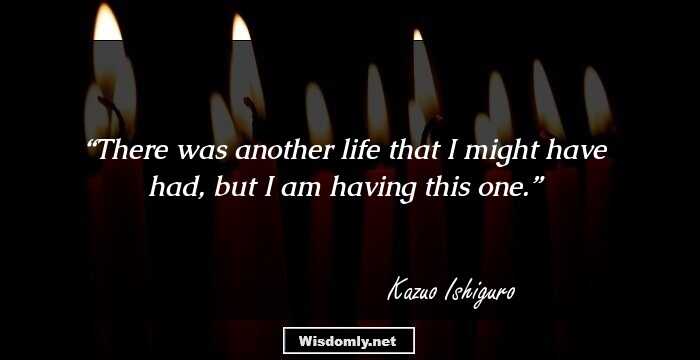
There was another life that I might have had, but I am having this one.
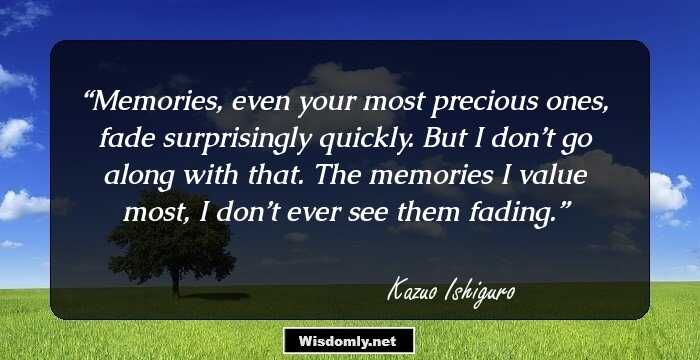
Memories, even your most precious ones, fade surprisingly quickly. But I don’t go along with that. The memories I value most, I don’t ever see them fading.
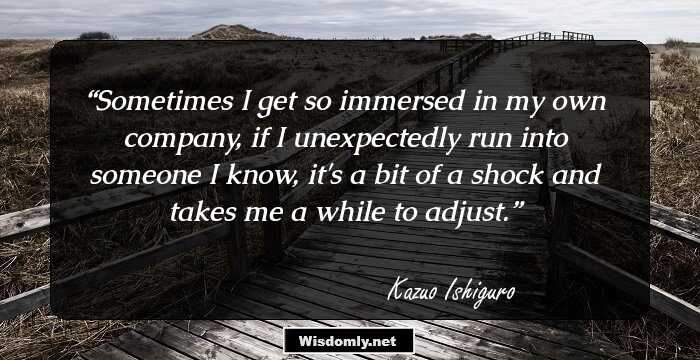
Sometimes I get so immersed in my own company, if I unexpectedly run into someone I know, it's a bit of a shock and takes me a while to adjust.
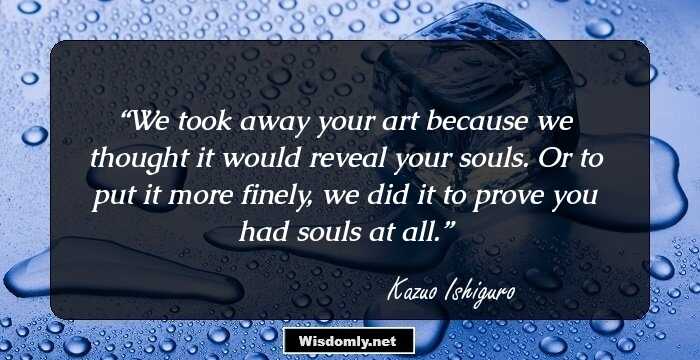
We took away your art because we thought it would reveal your souls. Or to put it more finely, we did it to prove you had souls at all.
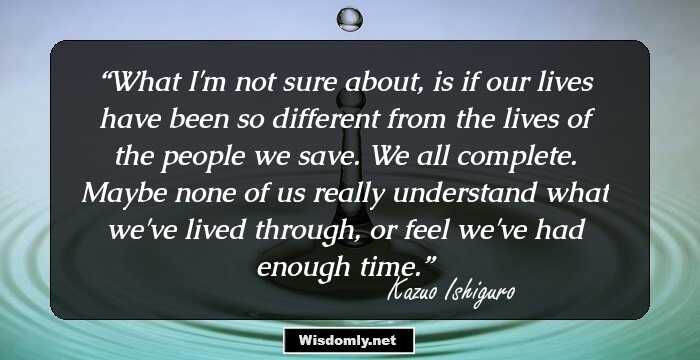
What I'm not sure about, is if our lives have been so different from the lives of the people we save. We all complete. Maybe none of us really understand what we've lived through, or feel we've had enough time.
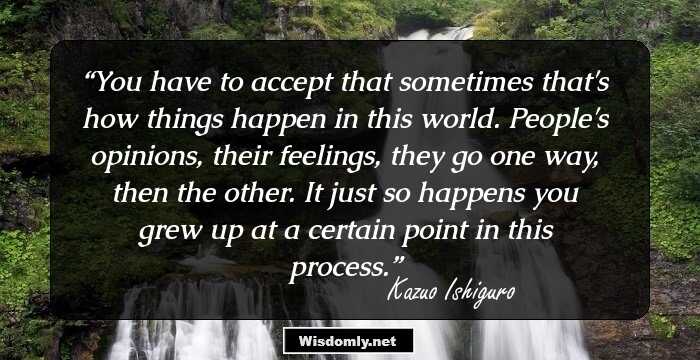
You have to accept that sometimes that's how things happen in this world. People's opinions, their feelings, they go one way, then the other. It just so happens you grew up at a certain point in this process.
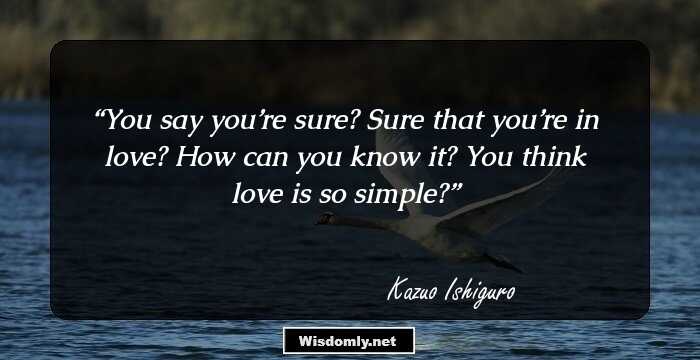
You say you’re sure? Sure that you’re in love? How can you know it? You think love is so simple?
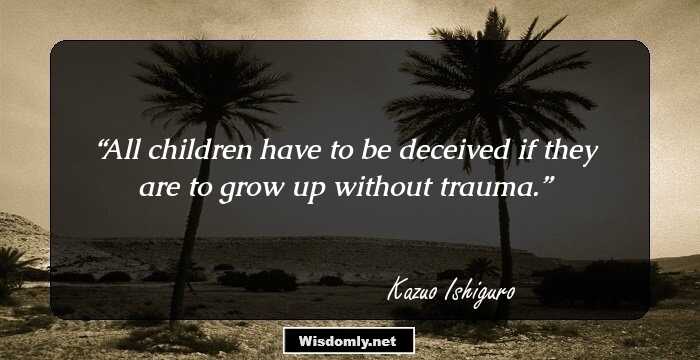
All children have to be deceived if they are to grow up without trauma.
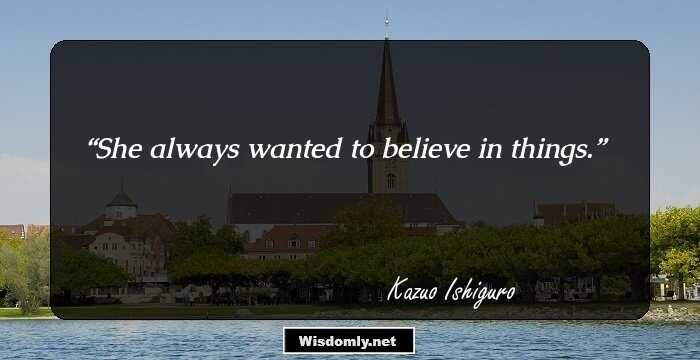
She always wanted to believe in things.
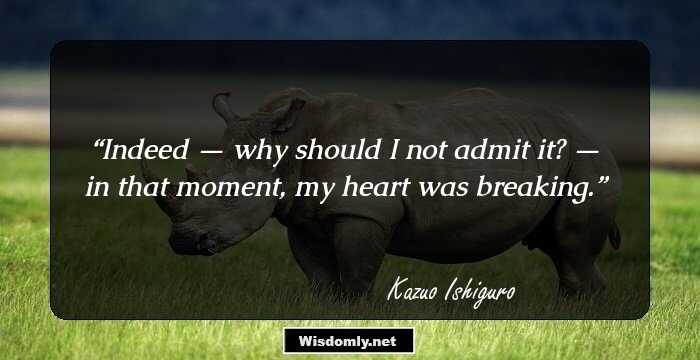
Indeed — why should I not admit it? — in that moment, my heart was breaking.
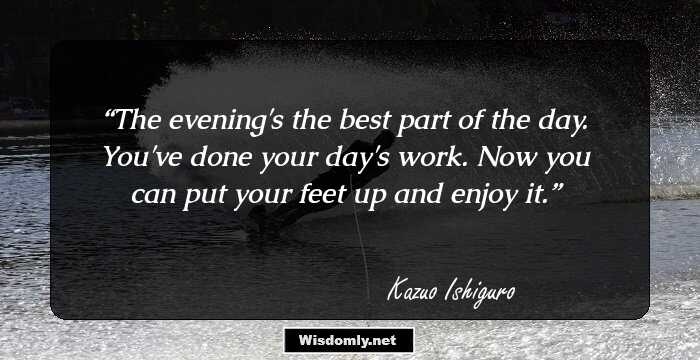
The evening's the best part of the day. You've done your day's work. Now you can put your feet up and enjoy it.
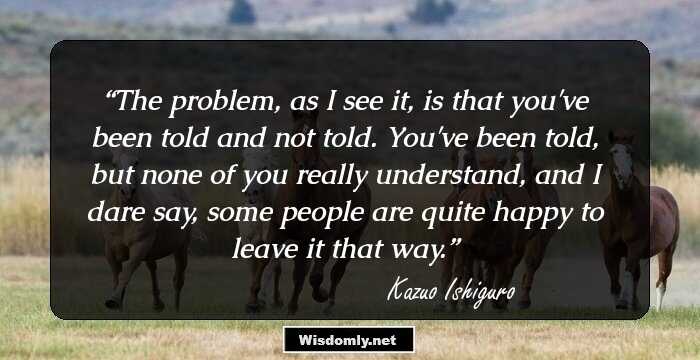
The problem, as I see it, is that you've been told and not told. You've been told, but none of you really understand, and I dare say, some people are quite happy to leave it that way.
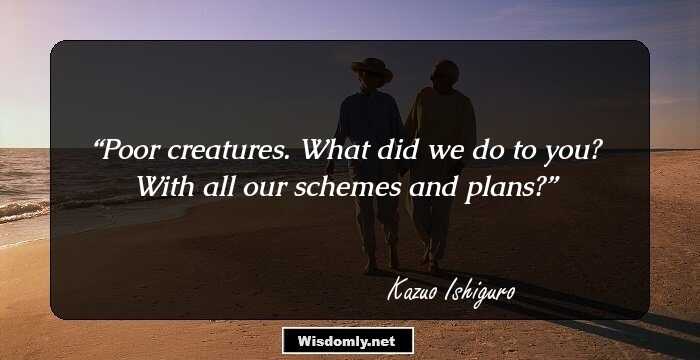
Poor creatures. What did we do to you? With all our schemes and plans?
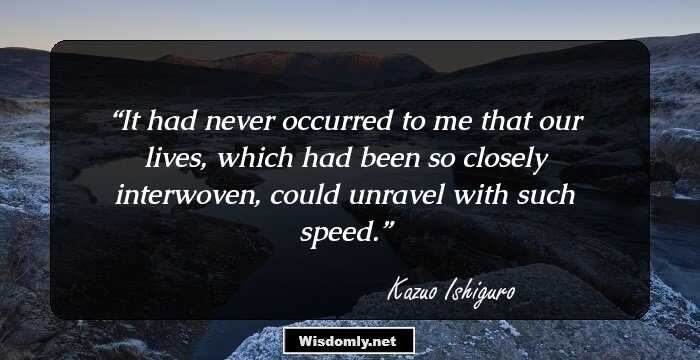
It had never occurred to me that our lives, which had been so closely interwoven, could unravel with such speed.
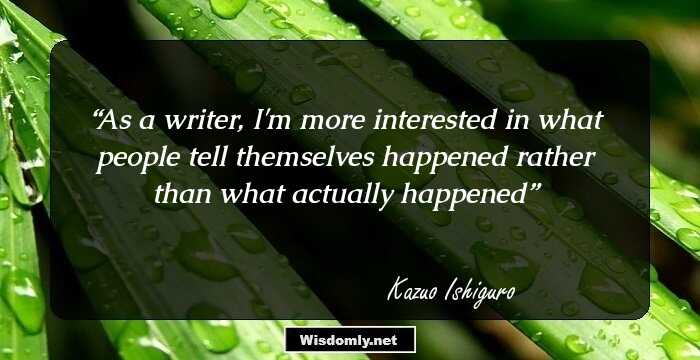
As a writer, I'm more interested in what people tell themselves happened rather than what actually happened
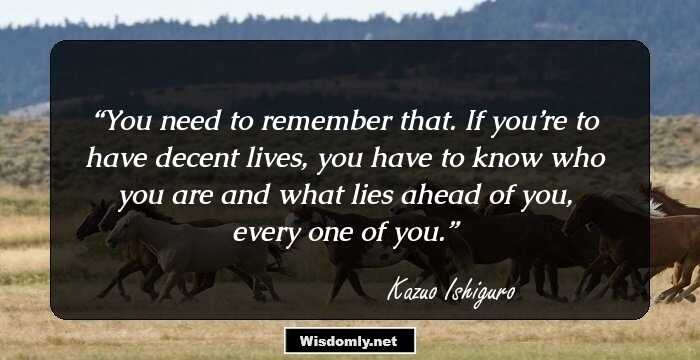
You need to remember that. If you’re to have decent lives, you have to know who you are and what lies ahead of you, every one of you.
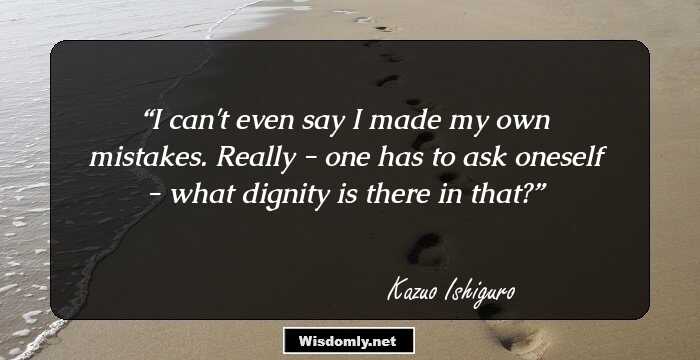
I can't even say I made my own mistakes. Really - one has to ask oneself - what dignity is there in that?
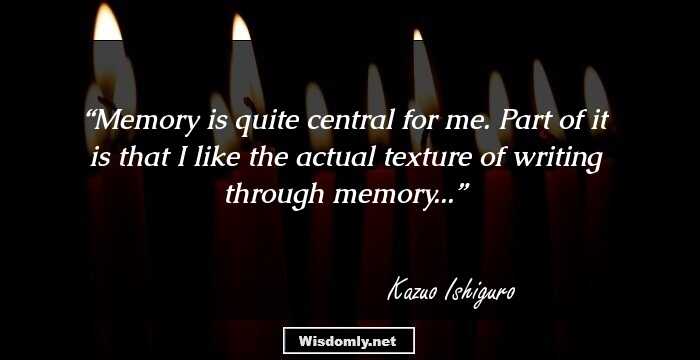
Memory is quite central for me. Part of it is that I like the actual texture of writing through memory...
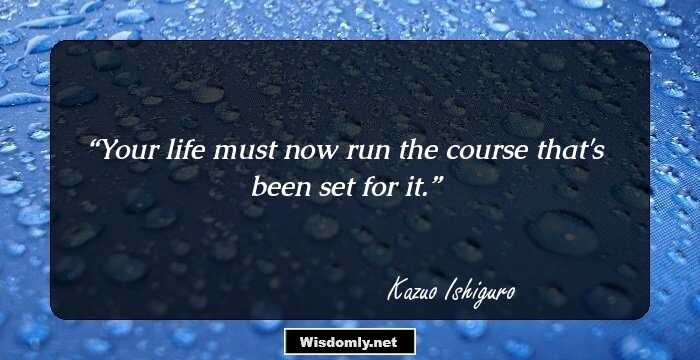
Your life must now run the course that's been set for it.
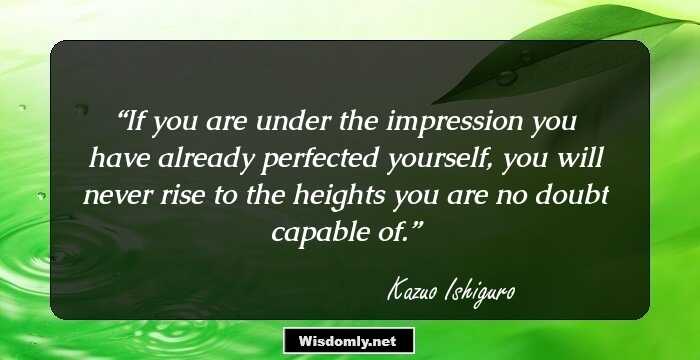
If you are under the impression you have already perfected yourself, you will never rise to the heights you are no doubt capable of.
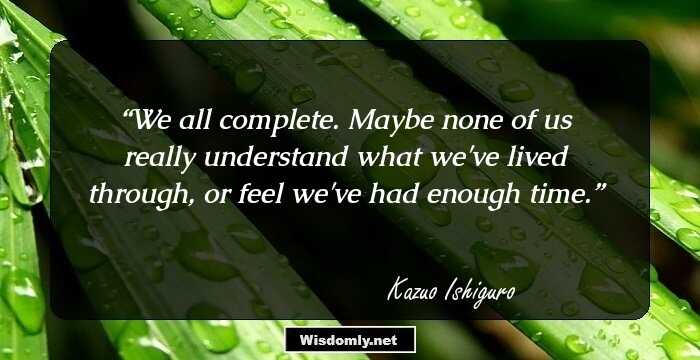
We all complete. Maybe none of us really understand what we've lived through, or feel we've had enough time.
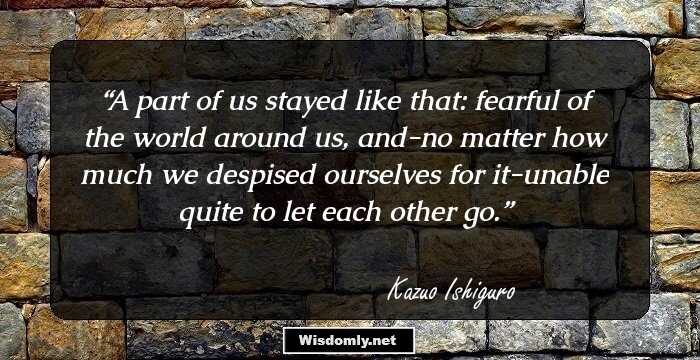
A part of us stayed like that: fearful of the world around us, and-no matter how much we despised ourselves for it-unable quite to let each other go.
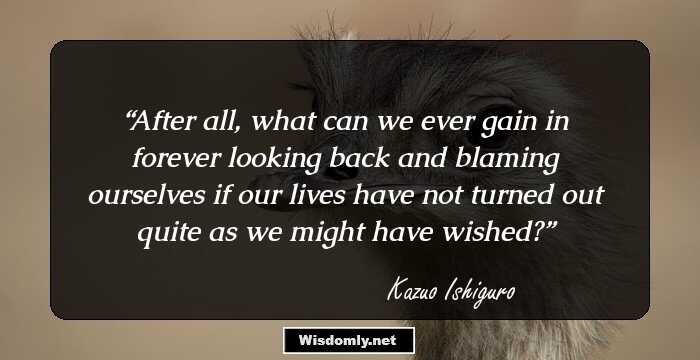
After all, what can we ever gain in forever looking back and blaming ourselves if our lives have not turned out quite as we might have wished?
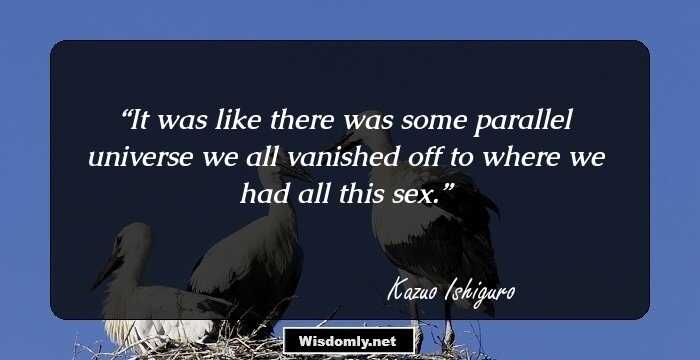
It was like there was some parallel universe we all vanished off to where we had all this sex.
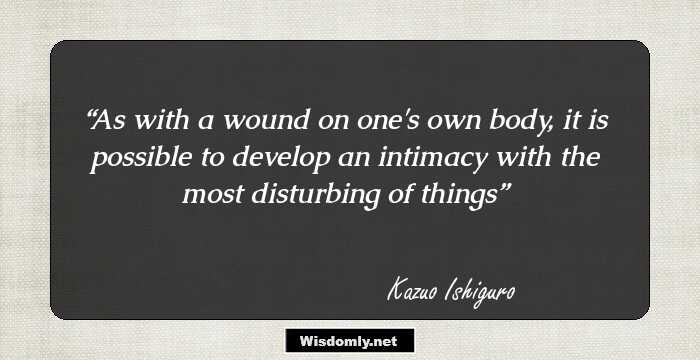
As with a wound on one's own body, it is possible to develop an intimacy with the most disturbing of things
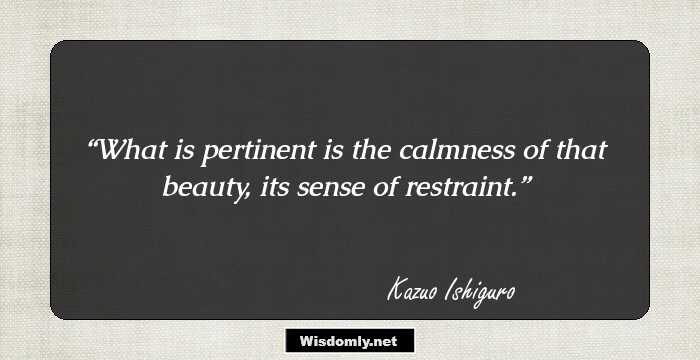
What is pertinent is the calmness of that beauty, its sense of restraint.
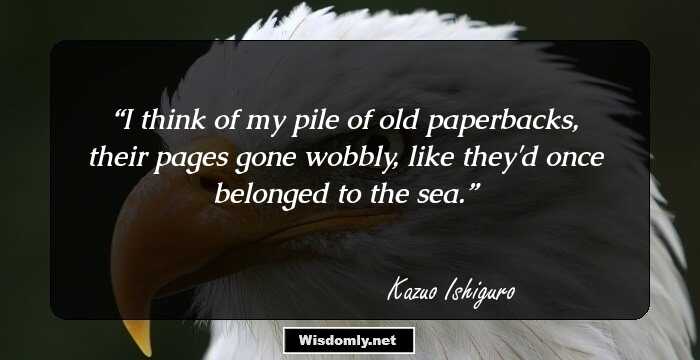
I think of my pile of old paperbacks, their pages gone wobbly, like they'd once belonged to the sea.
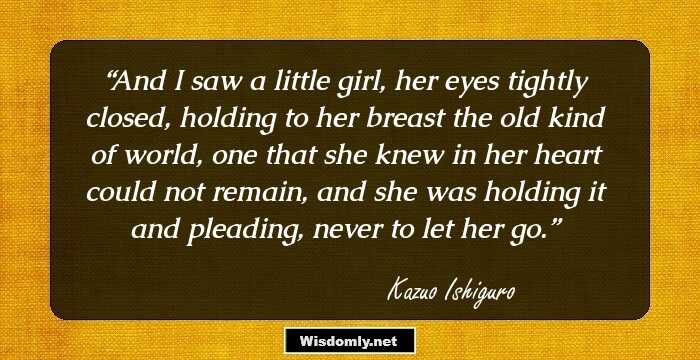
And I saw a little girl, her eyes tightly closed, holding to her breast the old kind of world, one that she knew in her heart could not remain, and she was holding it and pleading, never to let her go.
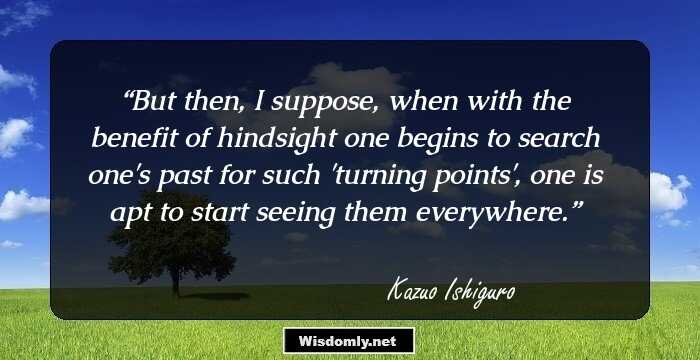
But then, I suppose, when with the benefit of hindsight one begins to search one's past for such 'turning points', one is apt to start seeing them everywhere.
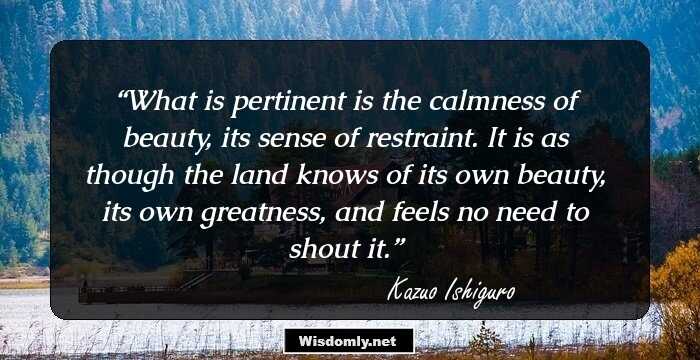
What is pertinent is the calmness of beauty, its sense of restraint. It is as though the land knows of its own beauty, its own greatness, and feels no need to shout it.










